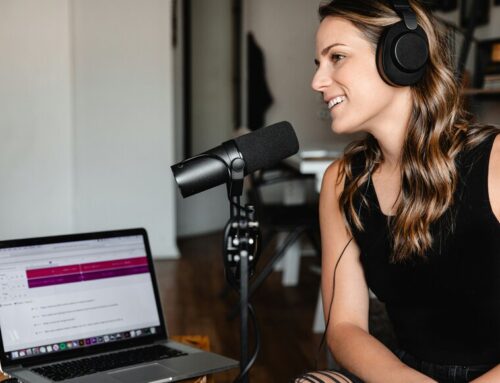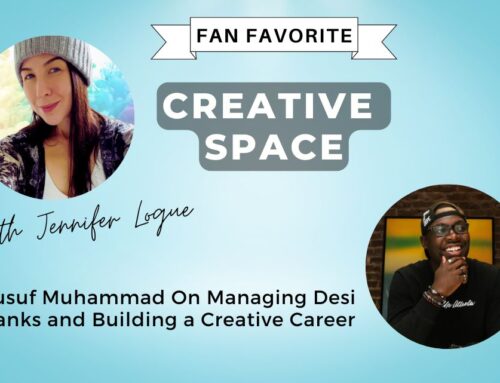Creativity is often seen as a mysterious, elusive force reserved for artists, musicians, or the “naturally gifted.” But the truth is, creativity is not limited to a select few. We all have the potential to be creative—whether you’re an artist, entrepreneur, problem-solver, or someone navigating day-to-day life challenges.
The real question is: Are you owning your creativity? Owning your creativity means acknowledging that it’s already within you and taking active steps to nurture, explore, and express it.
Here, we’ll explore what it means to own your creativity, why it’s important, and practical steps you can take to fully embrace your creative potential—no matter who you are or what your profession may be.
What Does It Mean to “Own” Your Creativity?
Owning your creativity is about recognizing that you are inherently creative. Creativity is a part of who you are, and it can manifest in countless ways. It’s about letting go of the notion that creativity belongs only to artists or those working in traditionally “creative” fields. You don’t have to write a novel or paint a masterpiece to be considered creative.
Creativity is found in how you approach challenges, solve problems, and see the world. It’s in the innovation you bring to your work, the ideas generated in brainstorming sessions, or the unique solutions you find to everyday problems.
When you own your creativity, you give yourself permission to:
- Express yourself freely without fear of judgment or failure.
- Experiment and try new things without worrying about perfection.
- Trust your instincts and ideas, even if they don’t fit the norm.
- Embrace the process, not just the outcome.
Owning your creativity is about shifting your mindset from “I’m not creative” to “Creativity is part of who I am.”
Why Owning Your Creativity Is Important
The importance of owning your creativity goes beyond just making something artistic. It’s about personal growth, problem-solving, and finding joy in self-expression. Here’s why it matters:
1. Creativity Boosts Problem-Solving Skills
One of the most valuable aspects of creativity is its role in problem-solving. Whether you’re figuring out how to streamline a business process, improve team collaboration, or navigate a personal challenge, creativity allows you to approach problems from fresh angles.
By owning your creativity, you become more adaptable and open to new solutions that may not have been apparent before. You gain the ability to tackle challenges with a flexible mindset and a willingness to explore uncharted territory.
2. Creativity Fosters Innovation
In today’s fast-paced world, innovation is key to success in any industry. Whether you’re an entrepreneur launching a startup or a leader in a corporate environment, owning your creativity is essential to driving innovation. Creativity opens doors to new possibilities, untested strategies, and unique approaches.
When you embrace creativity as part of your thinking process, you’re more likely to generate innovative ideas that push boundaries, differentiate your business, and capture new opportunities. Innovation and creativity go hand-in-hand, and owning your creative power fuels the drive to improve, evolve, and transform.
3. Creativity Cultivates Personal Fulfillment
Owning your creativity is a pathway to personal growth and fulfillment. It allows you to express your unique voice and bring your ideas to life. Whether big or small, the act of creation can be incredibly rewarding and satisfying.
When you take ownership of your creativity, you also give yourself the freedom to explore passions and hobbies that bring you joy, without worrying about whether you’re “good enough.” The process of creating something authentic can lead to a deep sense of accomplishment and fulfillment.
4. Creativity Enhances Communication
Creative thinking enhances communication by encouraging new ways to share ideas, tell stories, and connect with others. Whether you’re in marketing, sales, or a leadership role, owning your creativity can help you communicate in ways that resonate deeply with your audience.
Creativity in communication can manifest through storytelling, visual content, or even the way you craft an email or presentation. Owning your creativity helps you approach communication with authenticity, clarity, and impact.
5. Creativity Builds Confidence
One of the most powerful benefits of owning your creativity is the boost in self-confidence it provides. When you allow yourself to create, even if the result isn’t perfect, you develop resilience and the courage to try new things. Each creative step you take builds confidence in your abilities, your ideas, and your unique perspective.
As you become more comfortable expressing your creativity, you begin to trust yourself more, becoming bolder in your creative endeavors. This newfound confidence can extend into other areas of your life, making you more willing to take risks and explore new possibilities.
How to Own Your Creativity: Practical Steps
Now that you understand the value of owning your creativity, let’s dive into how you can actively embrace and nurture it in your daily life. Here are actionable steps you can take to start owning your creativity:
1. Change Your Mindset: Creativity is for Everyone
The first step to owning your creativity is to shift your mindset. Creativity isn’t reserved for a select group of people—it’s something everyone possesses. You don’t need to be an artist or a writer to be creative.
Start by acknowledging that creativity can be applied to any area of life, from the way you solve problems at work to how you approach personal challenges. When you let go of limiting beliefs about creativity, you open yourself up to new possibilities.
Pro Tip: Replace self-doubt with curiosity. Instead of saying, “I’m not creative,” ask yourself, “How can I bring more creativity into this situation?”
2. Make Time for Creativity
Creativity needs space to grow, but in the busyness of daily life, it’s easy to push creative endeavors to the bottom of the list. To own your creativity, you need to make time for it. Schedule regular creative time, even if it’s just 10 minutes a day, where you can brainstorm, doodle, write, or work on a project without any expectations.
Whether you’re starting a new hobby, revisiting an old one, or simply taking a creative approach to a work problem, set aside time to let your creativity flow.
Pro Tip: Set a timer for 10-15 minutes and focus on a creative activity. Consistency is more important than duration, so small, regular creative sessions will add up over time.
3. Embrace Failure as Part of the Process
Owning your creativity means being okay with failure. Creativity involves risk, experimentation, and trying things that might not work out. Instead of fearing failure, see it as part of the creative journey. Each failure is an opportunity to learn, adapt, and improve.
When you embrace the process and let go of the pressure to produce something perfect, you’ll find that creativity flows more freely.
Pro Tip: Keep a “creativity journal” where you document ideas, experiments, and even failures. Reflect on what worked and what didn’t, and use it as a tool for growth.
4. Surround Yourself with Inspiration
Creativity thrives in an environment filled with inspiration. Surround yourself with things, people, and experiences that inspire you. This could mean reading books, attending workshops, visiting museums, or connecting with creative individuals who challenge and motivate you.
Engaging with different forms of creativity—whether it’s art, music, nature, or culture—can spark new ideas and energize your own creative pursuits.
Pro Tip: Create a “vision board” where you collect images, quotes, and ideas that inspire you. Place it somewhere visible as a reminder of the creative energy you want to cultivate.
5. Share Your Work
A big part of owning your creativity is sharing your work with others. This might feel vulnerable at first, especially if you fear criticism, but putting your work out there is a key step in owning your creative identity.
Whether you’re sharing your work online, with friends, or in a professional setting, the act of sharing builds confidence and opens the door to feedback and collaboration.
Pro Tip: Start small. Share one piece of creative work with a trusted friend or a small group, and gradually expand your audience as you gain confidence.
6. Stay Curious and Keep Learning
Creativity isn’t a fixed trait—it’s something that can be nurtured and developed over time. Stay curious and open to learning. Take classes, explore new hobbies, and expose yourself to different ways of thinking. The more you learn, the more creative connections you’ll be able to make.
Remember that creativity is a lifelong journey, not a destination. Keep exploring, experimenting, and evolving as a creative individual.
Pro Tip: Try “creative cross-training” by learning something outside of your usual interests. For example, if you’re a writer, try taking a painting class. Engaging in new creative practices can stimulate fresh ideas and perspectives.
How to Maintain Creative Momentum
Owning your creativity isn’t just a one-time action—it’s an ongoing practice. Maintaining creative momentum requires dedication, curiosity, and resilience. Here are some tips for keeping your creativity alive:
- Set Creative Goals: Establish short-term and long-term creative goals to keep you motivated. Whether it’s completing a project, learning a new skill, or developing a creative habit, having goals will help you stay focused.
- Collaborate with Others: Creativity often flourishes in collaboration. Connect with other creatives, work on joint projects, and exchange ideas. Collaboration helps you push the boundaries of your creative potential and explore new approaches.
- Celebrate Progress: Celebrate each creative win, no matter how small. Recognize your efforts and give yourself credit for stepping out of your comfort zone. Celebrating progress keeps your motivation high and reminds you of how far you’ve come.
- Take Breaks When Needed: Creativity isn’t a nonstop process. Allow yourself to take breaks when you need to recharge. Often, stepping away for a while leads to even greater creativity when you return. Breaks provide space for ideas to incubate and often result in breakthroughs.
Final Thoughts: It’s Time to Own Your Creativity
Owning your creativity is about embracing the belief that you are creative, no matter what. It’s about giving yourself permission to express your ideas, try new things, and take risks without worrying about the outcome. The more you own your creative power, the more you open yourself to a world of possibilities.
Whether you’re just starting on your creative journey or you’ve been creating for years, the key to continued growth is showing up for your creativity consistently. By making creativity a regular part of your life, you’ll build confidence, find fulfillment, and discover new ways to express yourself.
If you enjoyed these tips, be sure to check out my podcast Creative Space for more inspiration on how to live creatively, both in your work and everyday life. Until then, get out there and own your creativity—whatever that looks like for you.





Leave A Comment